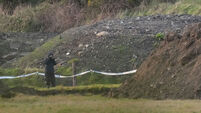Reserve forces cost €3.2m to run as barracks close
Figures released to the Irish Examiner show there are currently some 5,220 reservists making up the Army Reserve and Naval Service Reserve.
However, Defence Forces sources have said the figure of 5,220 reservists is merely a “paper figure” as many do not attend regularly, and the reserve force is regarded by many members as a “luxury”.













